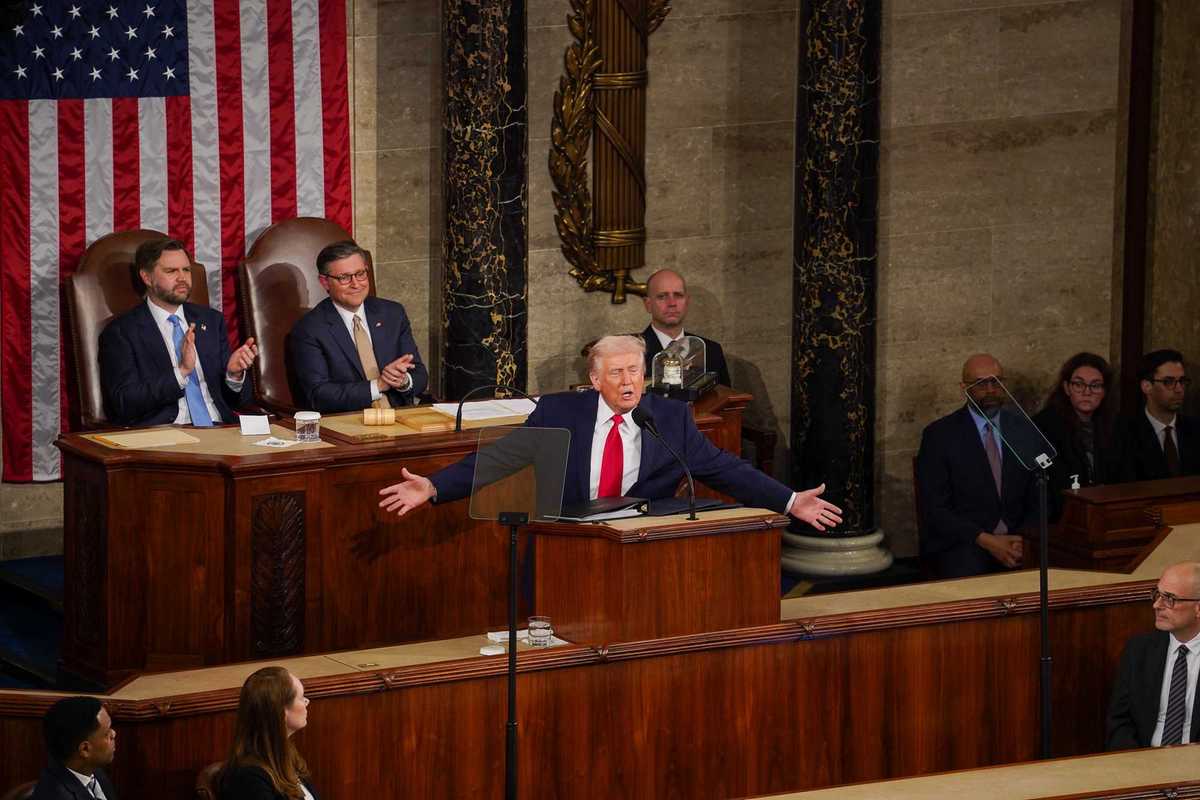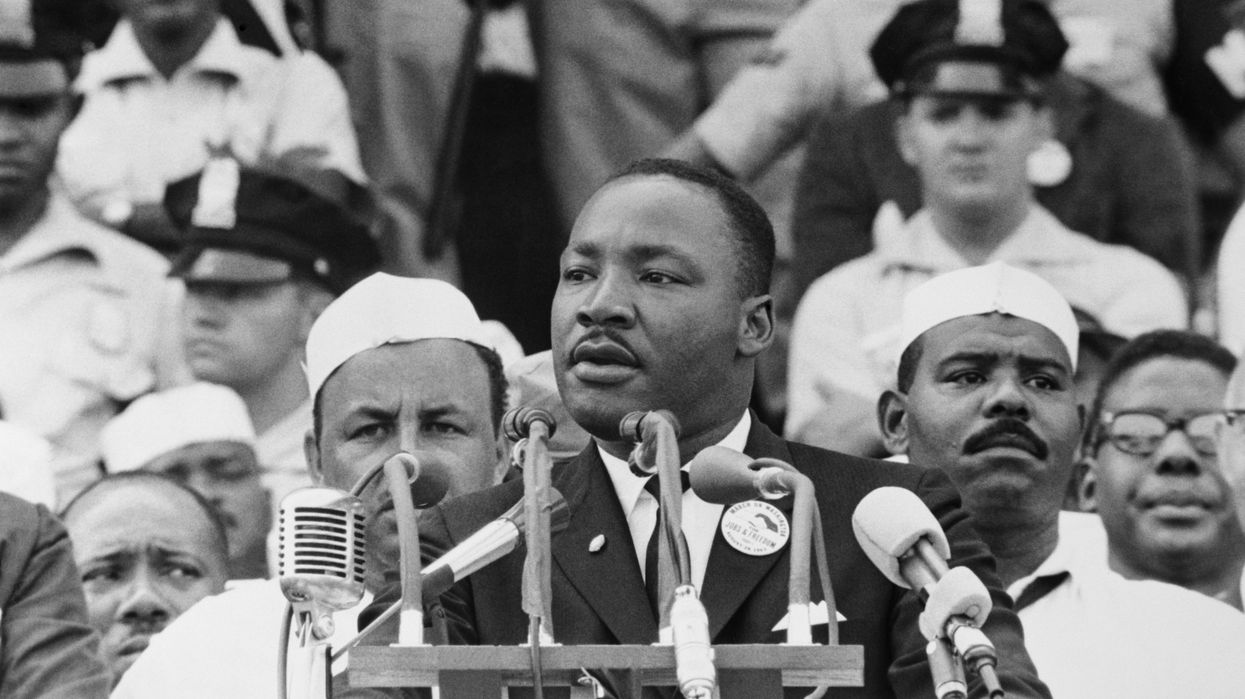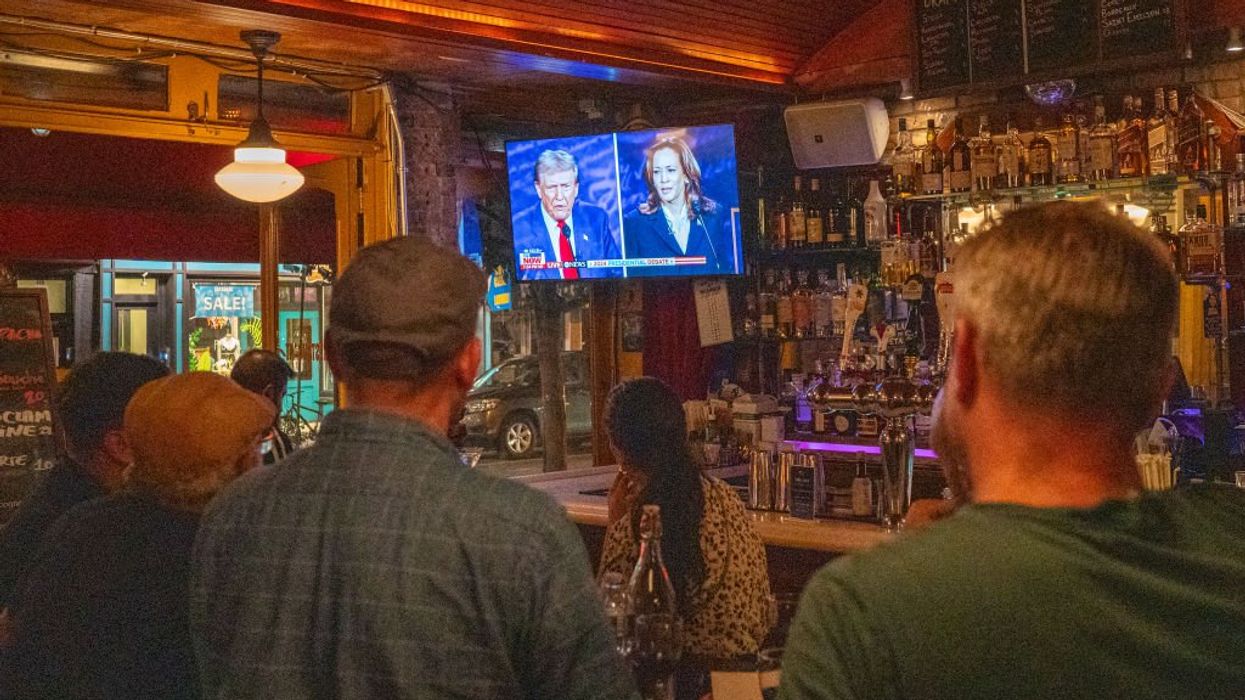Mesirow is the founder of the Elected Leaders Collective.
History’s most legendary leaders took their inner struggles and turned them into strengths to unite us. In contrast, the most reviled leaders allowed their inner turmoil to project outward, harming us. As leaders today, we each face a choice: Who do we want to be remembered as?
Figures like Abraham Lincoln, the Roosevelts, Martin Luther King Jr., and Nelson Mandela stand as pillars of transformation and healing. Their journeys were not paved by chance but by deliberate inner work, where personal growth intertwined with public service, a concept Aristotle called "arete."
Arete, a core Aristotelian value, represents the intersection where personal talents and passion meet public needs, elevating the public interest above personal gain to achieve one's highest potential in service. These leaders did more than succeed — they embodied transformation and built legacies that extended far beyond their own lives. This was no accident, and it was not magic.
Each of these lionized leaders was a prominent figure even in their youth. But it was only through bouts of depression, the struggles with polio, electoral losses, near-death experiences or incarceration that they transformed into something greater — leaders who discovered their arete.
It's not about the physical challenges you face but how you respond to them. Like Mandela, MLK, the Roosevelts and Lincoln, you can transform your struggles into the source material for growth. These leaders didn’t merely endure their hardships; they used them as a microscope into their inner world, connecting empathetically with others and emerging from their chrysalis, ready to serve with the entirety of their being. This is a long road, a hard road and an uncertain road. But it is also the only path to transforming society — and, in the process, becoming legendary.
Interestingly, the cosmological gift of rising to a higher calling is inner peace. Like Viktor Frankl, who found inner purpose, community, clarity and empathy through his inner work in the external hell of Auschwitz, these leaders turned their prisons into paradises in their minds. They emerged not just as survivors but as examples of the possible, their personal struggles fueling their public missions.
In contrast, leaders like George Wallace and Joseph McCarthy took the easy path. They were the darlings of their time, attracting votes and attention by dividing us. They rose quickly, but their legacies are buried in infamy. Mandela stayed on Robben Island for 28 years, yet he lives in eternity. McCarthy rose overnight, but his actions left lives strewn in his wake, a dark memory in our history.
The communal meal takes time but leaves the palate and soul full. Fast food is accessible and cheap but leaves a trail of harm to your heart, your health and our environment.
Today, as leaders, we are all in a challenging place. The world is coming at us with public hate, threats, misinformation and division. It can be overwhelming, isolating and maddening. We can all retrench to our worst impulses — I have. It’s normal and not your fault. You were never taught how to make your biology work for you rather than you for it. As an elected leader, I found myself short-tempered, reactive, angry, stressed, anxious and wondering what I was even doing. Was it worth it? Then, I applied the inner work.
With new tools and approaches, each challenge became a key to unlocking greater potential. Each conflict became an opportunity to heal. My universe expanded. Gridlock became teamwork. Advisories became collaborators. My anxiety fell. My alcohol consumption fell. I became clearer, more courageous and happier. I accomplished more with my community than I ever could have done for it, and others began to notice.
There is a movement afoot. A small group of brave leaders — electeds, staffers and non profit workers — are ready to do something different. We want to break out of partisan gridlock, stop feeling angry, and start connecting, doing, and leading from the heart with joy and possibility because we have the tools, practices and community to do it.
We are committed to cultivating leaders who lead like Lincoln, train like Teddy, and win like Winston. If you feel the call to rise above and lead with purpose, your journey to your highest potential starts with the first step inward.
You already know who you are in your heart. You know your arete. We welcome you if you seek the magic sauce to manifest it and are tired of doing it alone.



















U.S. Secretary of State Marco Rubio delivers a keynote speech at the 62nd Munich Security Conference on Saturday, Feb. 14, 2026, in Munich, Germany.
Marco Rubio is the only adult left in the room
Finally free from the demands of being chief archivist of the United States, secretary of state, national security adviser and unofficial viceroy of Venezuela, Marco Rubio made his way to the Munich Security Conference last weekend to deliver a major address.
I shouldn’t make fun. Rubio, unlike so many major figures in this administration, is a bona fide serious person. Indeed, that’s why President Trump keeps piling responsibilities on him. Rubio knows what he’s talking about and cares about policy. He is hardly a free agent; Trump is still president after all. But in an administration full of people willing to act like social media trolls, Rubio stands out for being serious. And I welcome that.
But just because Rubio made a serious argument, that doesn’t mean it was wholly persuasive. Part of his goal was to repair some of the damage done by his boss, who not long ago threatened to blow up the North Atlantic alliance by snatching Greenland away from Denmark. Rubio’s conciliatory language was welcome, but it hardly set things right.
Whether it was his intent or not, Rubio had more success in offering a contrast with Vice President JD Vance, who used the Munich conference last year as a platform to insult allies and provide fan service to his followers on X. Rubio’s speech was the one Vance should have given, if the goal was to offer a serious argument about Trump’s “vision” for the Western alliance. I put “vision” in scare quotes because it’s unclear to me that Trump actually has one, but the broader MAGA crowd is desperate to construct a coherent theory of their case.
So what’s that case? That Western Civilization is a real thing, America is not only part of it but also its leader, and it will do the hard things required to fix it.
In Rubio’s story, America and Europe embraced policies in the 1990s that amounted to the “managed decline” of the West. European governments were free riders on America’s military might and allowed their defense capabilities to atrophy as they funded bloated welfare states and inefficient regulatory regimes. Free trade, mass migration and an infatuation with “the rules-based global order” eroded national sovereignty, undermined the “cohesion of our societies” and fueled the “de-industrialization” of our economies. The remedy for these things? Reversing course on those policies and embracing the hard reality that strength and power drive events on the global stage.
“The fundamental question we must answer at the outset is what exactly are we defending,” Rubio said, “because armies do not fight for abstractions. Armies fight for a people; armies fight for a nation. Armies fight for a way of life.”
I agree with some of this — to a point. And, honestly, given how refreshing it is to hear a grown-up argument from this administration, it feels churlish to quibble.
But, for starters, the simple fact is that Western Civilization is an abstraction, and so are nations and peoples. And that’s fine. Abstractions — like love, patriotism, moral principles, justice — are really important. Our “way of life” is largely defined and understood through abstractions: freedom, the American dream, democracy, etc. What is the “Great” in Make America Great Again, if not an abstraction?
This is important because the administration’s defenders ridicule or dismiss any principled objection critics raise as fastidious gitchy-goo eggheadery. Trump tramples the rule of law, pardons cronies, tries to steal an election and violates free market principles willy-nilly. And if you complain, it’s because you’re a goody-goody fool.
As White House Deputy Chief of Staff Stephen Miller said not long ago, “we live in a world … that is governed by strength, that is governed by force, that is governed by power. These are the iron laws of the world that have existed since the beginning of time.” Rubio said it better, but it’s the same idea.
There are other problems with Rubio’s story. At the start of the 1990s, the EU’s economy was 9% bigger than ours. In 2025 we were nearly twice as rich as Europe. If Europe was “ripping us off,” they have a funny way of showing it. America hasn’t “deindustrialized.” The manufacturing sector has grown during all of this decline, though not as much as the service sector, where we are a behemoth. We have shed manufacturing jobs, but that has more to do with automation than immigration. Moreover, the trends Rubio describes are not unique to America. Manufacturing tends to shrink as countries get richer.
That’s an important point because Rubio, like his boss, blames all of our economic problems on bad politicians and pretends that good politicians can fix them through sheer force of will.
I think Rubio is wrong, but I salute him for making his case seriously.
Jonah Goldberg is editor-in-chief of The Dispatch and the host of The Remnant podcast. His Twitter handle is @JonahDispatch.